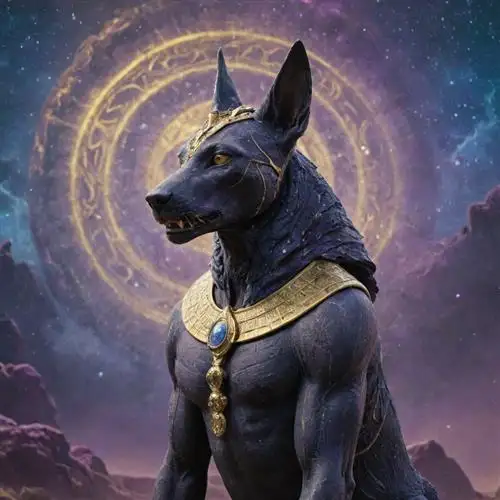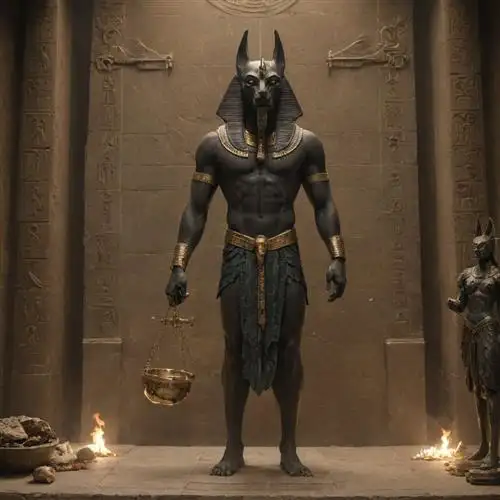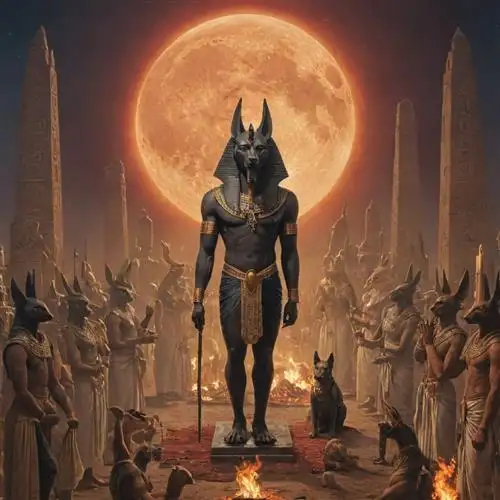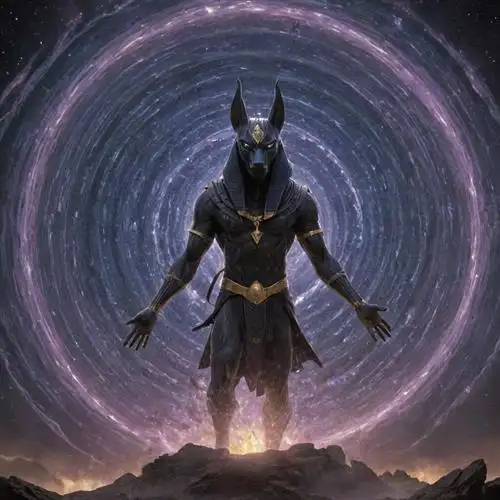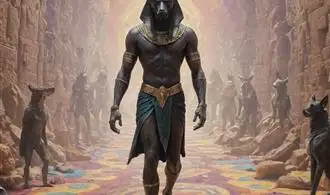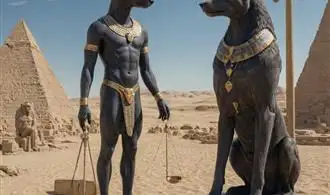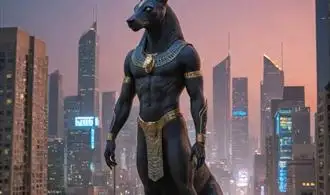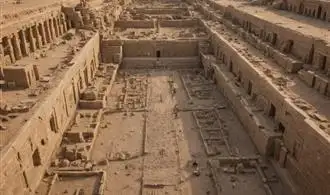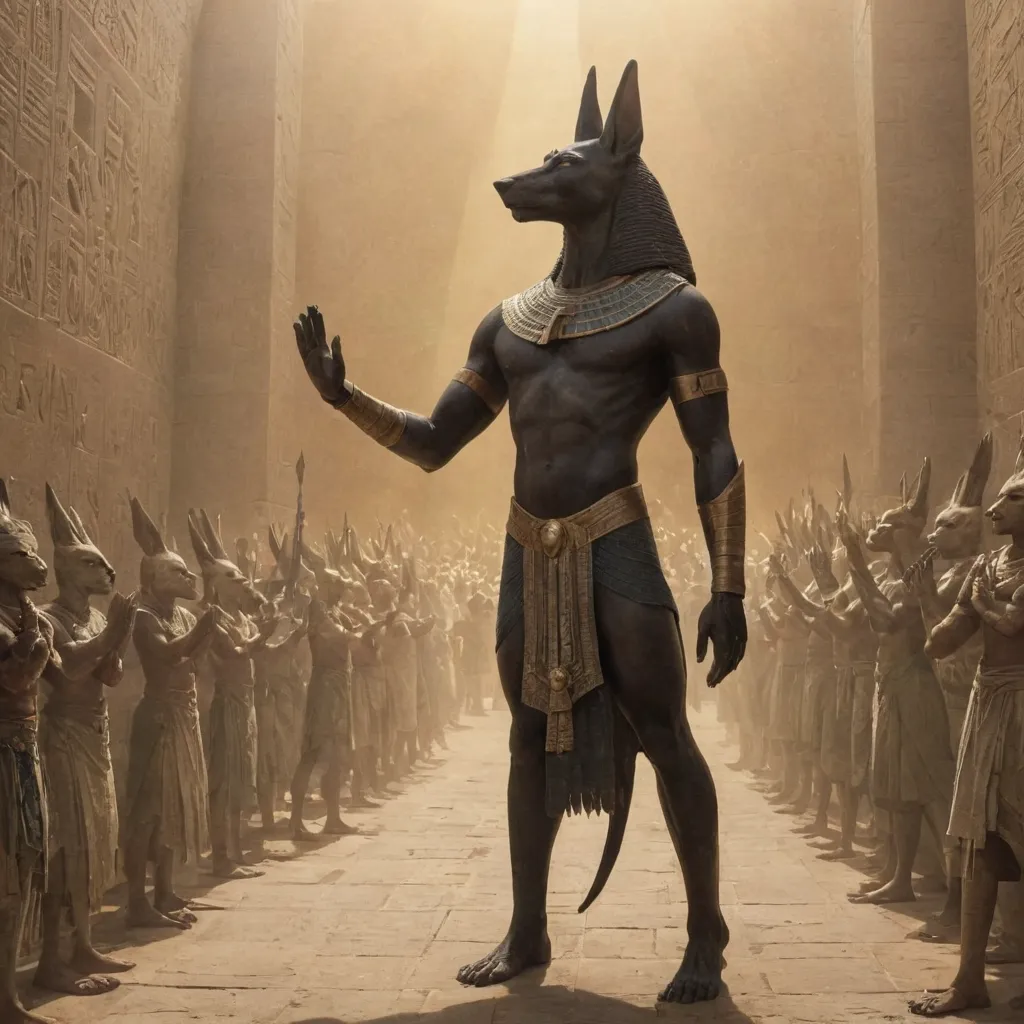
Anubis The Jackal Headed God
Anubis, the enigmatic jackal-headed god of ancient Egypt, has long captivated the hearts and imaginations of those seeking deeper connections to the mystical realms. As a central figure in the pantheon of Egyptian deities, Anubis holds a profound significance that transcends the mere passage of time. His multifaceted role as the guardian of the dead, the protector of the afterlife, and the embodiment of transformation and rebirth make him a deity worthy of profound reverence and worship.
At the core of Anubis's symbolic power lies his association with the jackal, a creature deeply revered in ancient Egyptian culture. The jackal's ability to navigate the liminal spaces between the world of the living and the realm of the dead, as well as its keen sense of smell and intuition, imbued Anubis with a profound connection to the mysteries of the afterlife. As the god who presided over the mummification process and the rituals of the dead, Anubis was entrusted with the sacred task of guiding the deceased through the treacherous journey to the afterlife, ensuring their safe passage and ultimate transformation.
Beyond his role as the guardian of the dead, Anubis also symbolized the transformative power of death and rebirth. As the deity who weighed the hearts of the deceased against the feather of Ma'at (the goddess of truth and justice), Anubis played a crucial role in the judgment and subsequent rebirth of the soul. This connection to the cycle of life, death, and resurrection made Anubis a pivotal figure in the Egyptian understanding of the afterlife, and a conduit through which the living could seek guidance and protection.
For those seeking to I Did It and So Can You - Mastering the Symbolism of Anubis, the worship of Anubis can offer a profound and transformative experience. Through rituals, meditations, and a deep dive into the rich symbolism and mythology surrounding this enigmatic deity, individuals can tap into the power of Anubis to navigate the complexities of life, death, and the afterlife with greater clarity and purpose.
The Role of Anubis in Egyptian Mythology
The Egyptian god Anubis holds a significant place in the rich tapestry of ancient Egyptian mythology. As the god associated with mummification and the afterlife, Anubis played a crucial role in the beliefs and practices of the ancient Egyptians. Understanding the role of Anubis within this context can provide valuable insights into the importance of this deity in the lives and afterlives of the ancient Egyptians.
Anubis was depicted as a jackal-headed god, a representation that symbolized his connection to the desert and the dead. In Egyptian mythology, Anubis was tasked with the crucial responsibility of overseeing the process of mummification, ensuring the proper preservation of the deceased's physical form. This role was essential, as the ancient Egyptians believed that the preservation of the body was vital for the soul's journey into the afterlife.
Beyond his role in mummification, Anubis was also believed to guide and protect the dead during their passage to the afterlife. He was present at the weighing of the heart ceremony, where the deceased's heart was weighed against the feather of truth to determine their worthiness for the afterlife. This ceremony, known as the "Judgment of the Dead," was a critical moment in the journey of the soul, and Anubis played a central role in ensuring the fairness and accuracy of this process.
In addition to his role in the afterlife, Anubis was also associated with the protection of the living. He was believed to protect individuals from the dangers of the desert and to guide them safely through the treacherous terrain. This aspect of Anubis's persona made him a revered figure among the ancient Egyptians, who often sought his favor and protection in their daily lives.
Rituals and Rites Honoring Anubis
Anubis, the Egyptian god of the dead, holds a revered place in ancient Egyptian mythology and continues to captivate the modern world. Honoring this pivotal deity through specific rituals and rites was a crucial aspect of life in ancient Egypt. These practices not only showcased the profound respect for Anubis but also provided a means for individuals to connect with the afterlife and the divine.
One of the most significant rituals associated with Anubis was the mummification process. As the god responsible for embalming and guarding the dead, Anubis played a central role in the complex and meticulous task of preparing the deceased for the afterlife. The embalmers would invoke Anubis' power and guidance during each step of the mummification, ensuring the proper preservation of the body and the soul's safe passage to the next realm.
Funerary rites were another integral part of honoring Anubis. The deceased would be adorned with Anubic symbols, such as the jackal-headed god or the ankh, which represented life and the cycle of death and rebirth. These symbolic gestures were meant to invoke Anubis' protection and facilitate the individual's transformation into the afterlife.
Devotees of Anubis would also engage in various offerings and rituals to seek the god's favor and guidance. These could include leaving food, incense, or other symbolic items at Anubic shrines or temples, as well as performing specific prayers or chants. The belief was that Anubis, as the gatekeeper to the afterlife, could intercede on behalf of the individual and ensure a smooth transition to the next world.
In some instances, individuals would also seek Anubis' counsel through divination or oracle practices. By interpreting signs, omens, or messages from the god, devotees could gain insights into the afterlife, the nature of death, or the course of their own spiritual journey.
Anubis in Modern Occult and Esoteric Practices
Anubis, the jackal-headed Egyptian deity, has long held a prominent role in the esoteric and occult practices of various traditions. This ancient god, associated with mummification, the afterlife, and the protection of the dead, has experienced a resurgence of interest in modern times, particularly among those drawn to the mysteries of the ancient world.
In the realm of modern occult and esoteric practices, Anubis is often invoked as a guide and protector, aiding practitioners in their spiritual journeys. His association with the afterlife and the transitional state between life and death makes him a powerful ally for those seeking to navigate the unknown and confront their own mortality. Many practitioners incorporate Anubis into their rituals, meditations, and divination practices, seeking his wisdom and guidance.
One of the key ways Anubis is revered in contemporary occult and esoteric traditions is through the How Anubis Can Help You Overcome Fear and Embrace the Afterlife. Anubis is seen as a guardian of the underworld and a psychopomp, guiding souls through the challenges and transformations of the afterlife. By working with Anubis, practitioners can confront their fears, embrace the mysteries of the afterlife, and develop a deeper understanding of the cyclical nature of existence.
Additionally, Anubis is sometimes invoked in rituals and spellwork focused on protection, purification, and transformation. His association with mummification and the preservation of the dead has led to his inclusion in practices aimed at spiritual cleansing, the release of negative energies, and the facilitation of personal growth and metamorphosis.
Moreover, Anubis is often depicted in contemporary occult and esoteric art, jewelry, and other forms of spiritual expression. These visual representations serve as focal points for meditation, invocation, and the channeling of Anubis' energies, allowing practitioners to forge a deeper connection with this powerful deity.
Why Worshipping Anubis is Beneficial
Worshipping the Egyptian god Anubis offers numerous benefits that can enrich your spiritual journey and personal growth. Anubis, the jackal-headed deity associated with mummification, the afterlife, and the dead, is a powerful and multifaceted figure in ancient Egyptian mythology. By understanding and connecting with Anubis, you can unlock profound insights and experiences that can positively impact your life.
One of the primary benefits of worshipping Anubis is the opportunity for personal transformation. As the god of the dead, Anubis is closely tied to the processes of death, rebirth, and renewal. By embracing the energy and symbolism of Anubis, you can confront your own mortality, release attachments, and undergo a metaphorical "death" of your old self, paving the way for a rebirth and a deeper connection with your authentic spiritual essence.
Anubis is also a powerful guide and protector, particularly during times of transition and transformation. As the guardian of the dead and the one who oversees the process of mummification, Anubis can provide guidance and support during major life changes, such as the loss of a loved one, a significant career shift, or a profound personal awakening. By invoking Anubis, you can tap into his strength, wisdom, and compassion, allowing him to watch over you and help you navigate these challenging times with grace and resilience.
Furthermore, worshipping Anubis can enhance your spiritual development and connection with the divine. As the god of the afterlife, Anubis is closely associated with the realm of the unseen and the mysteries of the cosmos. By cultivating a relationship with Anubis, you can deepen your understanding of the cycle of life and death, explore the hidden dimensions of existence, and gain access to profound insights and revelations that can expand your consciousness and spiritual awareness.
Anubis is also a powerful archetype of justice, discernment, and the pursuit of truth. By aligning with Anubis and his attributes, you can develop a heightened sense of integrity, decision-making skills, and the ability to navigate complex moral and ethical dilemmas with clarity and wisdom. This can be particularly beneficial in both your personal and professional life, as you strive to make informed choices and uphold your values.

